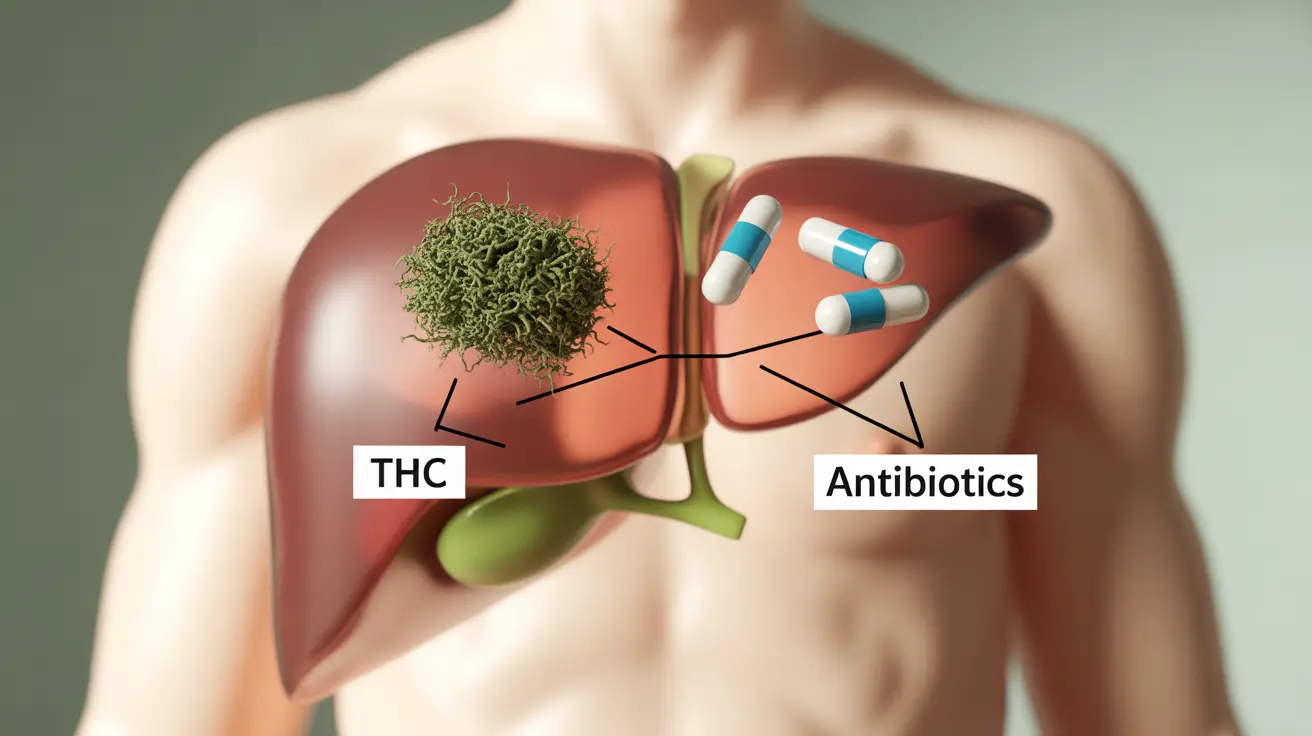When prescribed antibiotics, many patients wonder about potential interactions with other substances they regularly use, including THC (tetrahydrocannabinol). Understanding the relationship between THC and antibiotics is crucial for ensuring effective treatment and avoiding potential complications.
This comprehensive guide explores the current understanding of THC-antibiotic interactions, potential risks, and important considerations for patients using both substances.
Understanding THC and Antibiotic Interactions
THC and antibiotics can interact in several ways within the body. Both substances are processed by the liver's cytochrome P450 enzyme system, which could potentially affect how each substance is metabolized. This interaction might influence the effectiveness of antibiotic treatment or alter THC's effects in the body.
Metabolism and Processing
The liver's role in processing both THC and antibiotics is significant. When these substances compete for the same metabolic pathways, it could potentially lead to:
- Altered antibiotic effectiveness
- Changed THC absorption rates
- Modified duration of effects for either substance
- Increased risk of side effects
Safety Considerations
While research on THC-antibiotic interactions remains limited, several important safety factors should be considered. The combination might increase the risk of certain side effects, particularly those affecting the central nervous system.
Common Side Effects to Watch For
When using THC while taking antibiotics, patients should be aware of potential side effects such as:
- Increased drowsiness
- Dizziness
- Coordination problems
- Cognitive impairment
- Digestive system issues
Specific Antibiotic Interactions
Different classes of antibiotics may interact differently with THC. Some antibiotics, particularly those metabolized through the CYP450 system, might have stronger interactions than others. Macrolide antibiotics and fluoroquinolones, for example, may have more significant interactions with THC compared to other types.
Cannabis's Antimicrobial Properties
While cannabis has shown some promising antibacterial properties in laboratory studies, these effects should not be considered a replacement for prescribed antibiotics. The antimicrobial effects of cannabis compounds are still being researched and are not well-understood enough to rely on for treating bacterial infections.
Frequently Asked Questions
Is it safe to use THC while taking antibiotics?
While there's no definitive evidence showing severe dangers in combining THC and antibiotics, it's important to inform your healthcare provider about THC use. They can monitor potential interactions and adjust treatment if necessary.
Can THC affect how antibiotics work in the body?
Yes, THC might affect how antibiotics are metabolized in the body since both substances are processed through the liver's enzyme systems. This could potentially impact the effectiveness of antibiotic treatment.
What side effects can occur when combining THC and antibiotics?
Common side effects may include increased drowsiness, dizziness, and coordination problems. Some people might also experience enhanced anxiety or digestive issues.
Are there certain antibiotics that interact more with THC than others?
Yes, some antibiotics, particularly those metabolized through the CYP450 enzyme system, may have stronger interactions with THC. Specific classes like macrolides and fluoroquinolones might have more significant interactions.
Does cannabis have antibacterial properties that help fight infections?
While cannabis has shown some antibacterial properties in laboratory studies, these effects are not well-understood or proven effective for treating infections. Prescribed antibiotics should never be replaced with cannabis for treating bacterial infections.
Remember to always consult with your healthcare provider about any substances you're using, including THC, when being prescribed antibiotics. This ensures the safest and most effective treatment approach for your condition.




